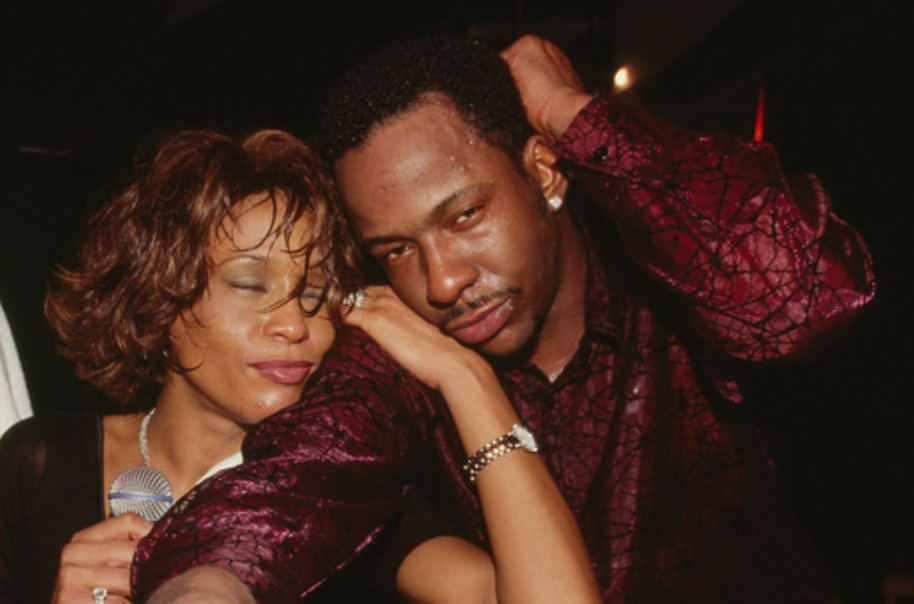Bobby Brown is a lot of things: tactful and caring with regard to his ex-wife, Whitney Houston, isn’t one of them. The latest example in a long series of displays of lack of feeling or respect for Houston comes just in time for the promotion of his upcoming miniseries for BET, The Bobby Brown Story. Though Houston’s six-year death anniversary was a few weeks ago on February 11th, Brown has suddenly found it pertinent to weigh in on the cause of her death not being a result of a drug overdose–in spite of the toxicology report very publicly declaring that her ticket was punched early as a result of, “Drowning due to drug intoxication.”
Regardless of scientific findings, however, Brown has insisted, “I don’t think she died from drugs,” in a new interview with Rolling Stone. Apparently still clinging to the woman that brought his name back into the public consciousness by latching onto her in general and with the Bravo reality series, Being Bobby Brown, in 2005 (the network didn’t want to renew it once Houston refused to be in another season), Brown’s needless commentary on the nature of Houston’s demise is not only in poor taste, but only further corroborates his abuse (both physical and emotional) of the singer over the course of their far too long relationship and marriage. Like Amy Winehouse with Blake Fielder-Civil, Houston barely got out alive, and then, ultimately, did not. In both cases, each woman was living a life of sobriety until one false step with their old lover and nemesis–drugs, not the man who introduced her to drugs–led them to an abrupt end.
Worst of all, it took Houston a long time to rebuild her reputation after it was heavily tarnished in the early and mid-00s with her Sid and Nancy vibes as she persisted in associating with Bobby Brown (essentially playing himself as the deadbeat little asshole shrugging, “I’m a man, ain’t I?” in 2001’s Two Can Play That Game). In the illustrious Diane Sawyer interview of 2002, Houston did her best to preserve some semblance of dignity by setting the record straight about the fact that she did not smoke crack, because, after all, “Crack is cheap. I make too much money to ever smoke crack. Let’s get that straight. Okay? We don’t do crack. We don’t do that. Crack is wack.”
So it was that the only thing to do in order to convince not just the masses, but also her family that she was going to be all right was to, at last, divorce Brown, a move that became effective in February of 2007. And though Houston seemed on the permanent road to recovery once she had shaken the disease of loving Brown, her behavior in her final days indicated that she had returned to cocaine use, among other drugs that were eventually found in her system, including marijuana, diphenhydramine, alprazolam and cyclobenzaprine.
“Love.” It’s a helluva drug that creates the need for other ones that can more readily manifest the damage of the interior mind to the exterior body. And then, like some sort of modern Greek tragedy, Houston’s only daughter, Bobbi Kristina, would also be found in a bathtub with drugs in her system by authorities before succumbing to a too early death at the age of twenty-two. In a bizarre form of hypocrisy, Brown also stated in the same interview in reference to the Bobbi Kristina Serenity House and Bobbi Kristina’s boyfriend, Nick Gordon, “We want to let women know that they don’t have to be scared and stay in that [unhealthy] relationship. This isn’t a fucking game.” Oh Bobby, either you’re still smoking the good shit, or the residual effects have remained in your brain permanently. Whatever the case, Houston most assuredly died “from drugs.”




















